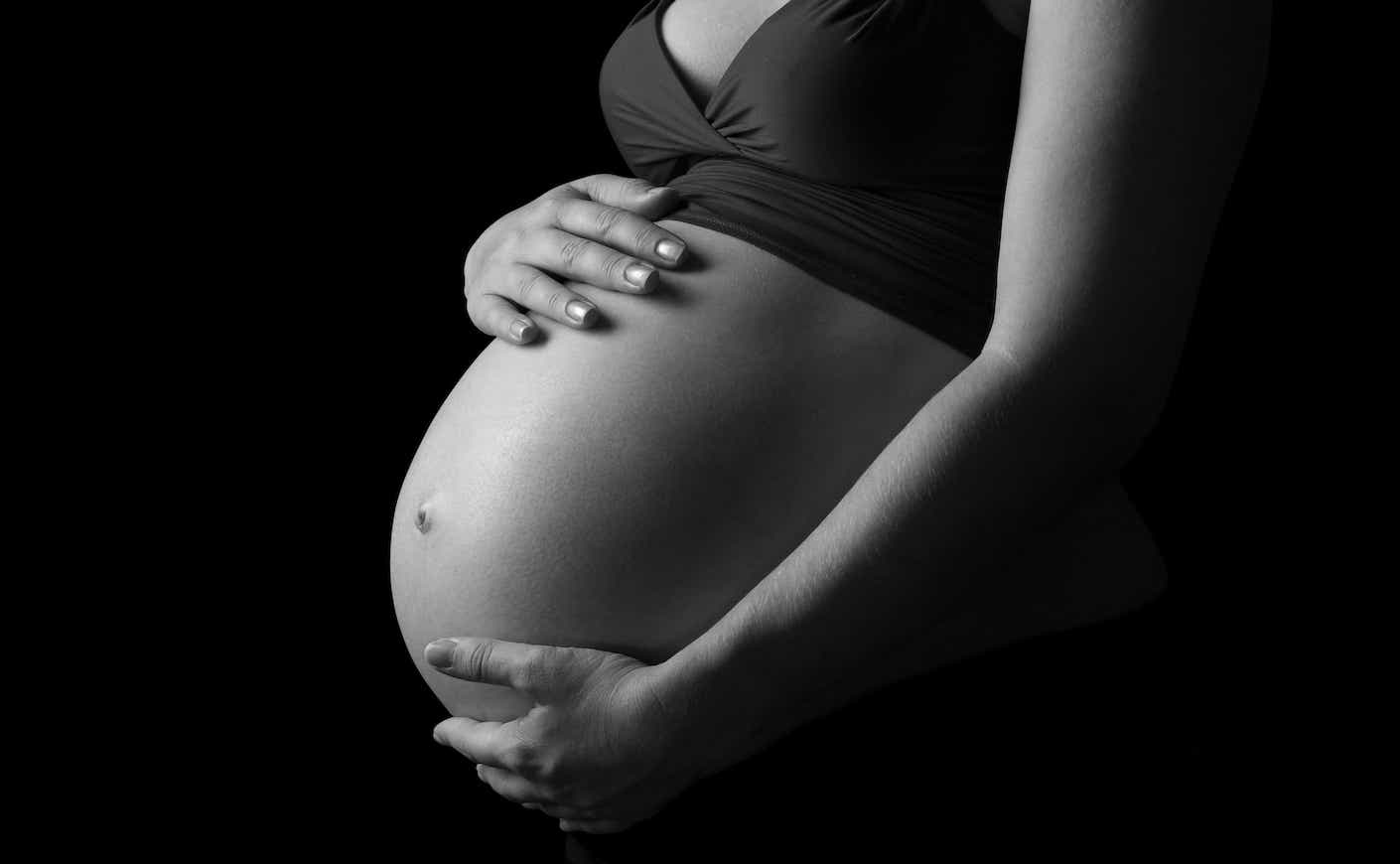A new Republican bill that’s geared toward pregnant women and new moms is raising some eyebrows. Just days before Mother’s Day, Senator Katie Britt introduced the More Opportunities for Moms to Succeed Act — or “MOMS Act” — which would require child support payments throughout pregnancy and launch a website with pregnancy-related resources. However, some worry that this legislation could create a federal database storing information on pregnant people.
Though Britt’s office has rejected the idea that the legislation is designed to create a registry, Democratic Sen. Patty Murray joined 10 other Senate Democratic women to denounce Britt’s bill in a statement, saying it would “create a new government-run website to collect data on pregnant women and direct them to anti-abortion crisis pregnancy centers.”
Amid this fresh scrutiny, here’s a closer look at Britt's history and what she’s proposing for the future.
Wait, who is Katie Britt again?
In 2023, Britt was sworn in as Alabama's first female senator — and the 42-year-old is the youngest Republican woman ever elected to the U.S. Senate.
She’s been considered a rising star, and in March, she delivered the GOP’s rebuttal to President Biden’s State of the Union address. But her overly theatrical delivery, in which she oscillated between sounding cheerful and on the verge of tears, was mocked by some and completely baffled others.
She also made headlines when former President Trump said during a FOX News interview that he got a call from her after the Alabama Supreme Court ruled that frozen embryos are children, prompting him to issue a statement supporting IVF. At one point, she was even floated as a possible running mate, though it’s unclear if that’s still the case following her widely panned SOTU response.
Like most Republicans, Britt is staunchly anti-abortion and described herself as “100 percent pro-life." Her home state of Alabama has one of the strictest abortion bans in the country, which only makes exceptions in cases where there is a serious health risk to the mother.
What would Katie Britt's pregnancy proposal do?
Britt has floated the MOMS Act as a way to provide “critical support to women'' in the various stages of motherhood and combat declining U.S. birth rates. According to the Centers for Disease Control and Prevention, only 3.6 million babies were born in 2023, the lowest number since 1979.
But it’s worth noting that the bill has been endorsed by several conservative action groups like Susan B. Anthony Pro-Life America and it shows. One major component would require states to provide child support obligations during pregnancy as opposed to just after birth at the mother’s request, which Democrats say underscores the conservative belief that embryos are children.
The proposal would also direct the Department of Health and Human Services to launch a clearinghouse called Pregnancy.gov, which would create a national list of adoption agencies and pregnancy crisis centers. Even though these centers offer free pregnancy tests and supplies for pregnant women, critics have noted that they also tend to provide inaccurate medical information to prevent women from seeking abortions.
The website would also specifically exclude any provider that “performs, induces, refers for, or counsels in favor of abortions.” While it’s true that a majority of OB-GYNs don’t offer abortions, most of them do provide critical care for women who have had miscarriages, which sometimes involve the same procedures and medications. And under the bill, only anti-abortion non-profits, like the ones listed on the site, would receive grants.
Why is this proposal sparking so much debate?
The bill’s Pregnancy.gov provision is drawing added scrutiny because it would collect data and potentially track pregnancies across the country.
Under the plan, the website would encourage users to consent to providing their contact information. This would allow the Secretary of Health and Human Services to “conduct outreach via phone or email to follow up with users.” Britt’s Democratic counterparts warn that the government could then use this information and start checking in with expectant mothers about the status of their pregnancies.
“Americans don’t want the government to track, intimidate, and coerce pregnant women into carrying their pregnancies to term no matter their circumstances,” Murray said in her statement, along with Massachusetts Senator Elizabeth Warren and Minnesota Senator Amy Klobuchar.
Social media users have also slammed the bill, comparing it to the Hulu series, The Handmaid’s Tale, which depicts a totalitarian society that’s ruled by a fundamentalist regime that treats women as property of the state.
Does it have any chance of passing?
At least 12 Republicans have co-sponsored Britt's bill but it has virtually no chance of clearing Congress.
Her party is currently in the minority in the Senate and only has a slim majority in the House. For it to pass, both chambers would need to approve before President Biden signs it into law but that’s unlikely given his support of abortion rights.
The bill comes as Republicans wrestle with finding a message on reproductive rights that resonates with voters following the Supreme Court’s decision to overturn Roe v. Wade in June 2022. Up until this point, the party has largely focused on imposing restrictions on the procedure, while Democrats have successfully run on opposing these measures.
At the national level, abortion is still on the minds of some Americans — about 1 in 8 voters say it’s the most important issue heading into November’s election, according to the independent health policy research organization KFF.









